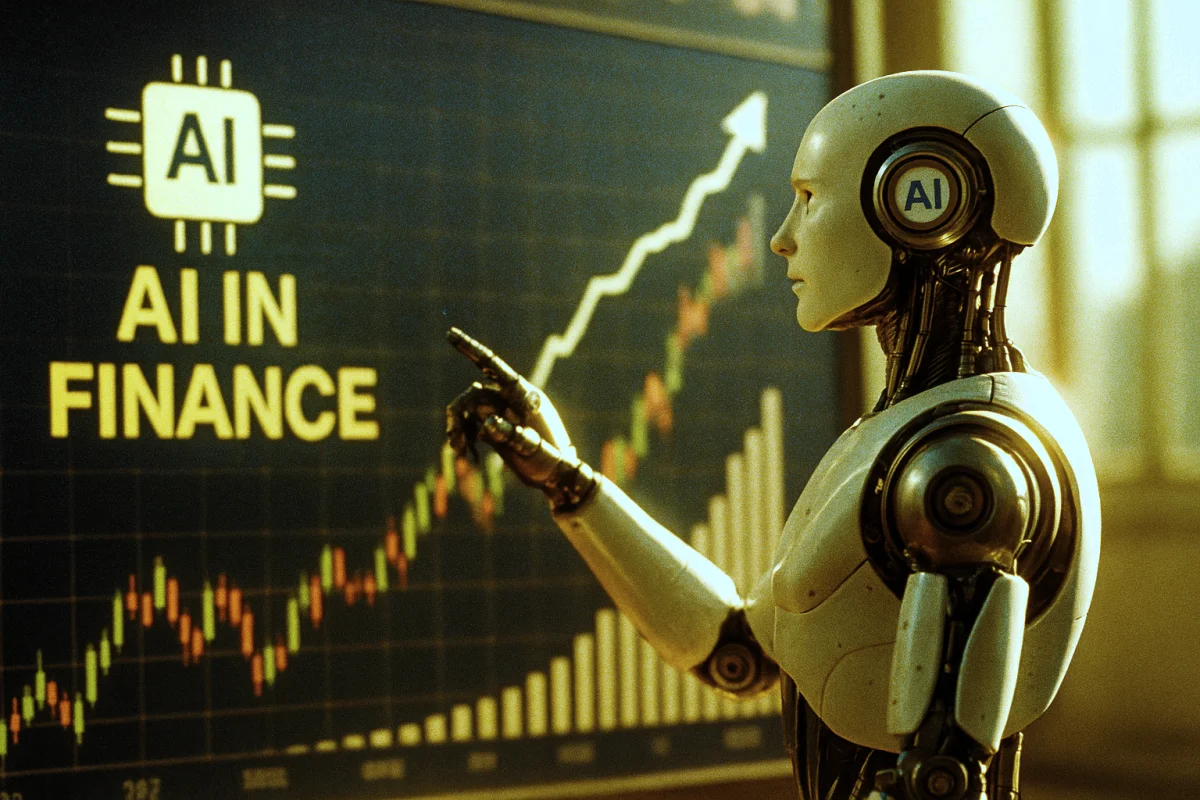How Does AI Work in Financial Markets?
Financial markets have long been considered one of the most complex and volatile systems, with millions of transactions occurring daily. For humans, processing all this information and making accurate decisions can be overwhelming. This is why, in recent years, Artificial Intelligence (AI) has become a core tool in the financial industry. But how exactly does AI operate in financial markets, and what benefits does it bring?

The Role of AI in Financial Analytics
AI systems leverage Machine Learning and Deep Learning to process massive flows of data. Algorithms can compare historical and real-time information, enabling them to:
- Identify hidden market trends;
- Predict movements in stock and crypto markets;
- Spot risks and prevent potential losses;
- Generate trade signals within milliseconds.
Algorithmic Trading
One of the most common uses of AI in finance is algorithmic trading, where algorithms independently decide when to buy or sell assets. Its advantages include:
- High speed — AI reacts instantly to market changes;
- No emotions — unlike humans, AI bases decisions solely on data;
- Scalability — monitoring thousands of assets simultaneously.
AI in Cryptocurrency Markets
Crypto markets are highly volatile, which makes them ideal for AI-driven strategies. AI trading bots analyze blockchain data, social media signals, and price dynamics. This enables investors to create faster and more efficient strategies.
Risk Management and Fraud Prevention
Another vital role of AI in finance is risk management. AI systems monitor transactions and detect unusual activities, such as:
- Uncontrolled price fluctuations;
- Abnormal trading volumes;
- Fraudulent activities, including money laundering.
This way, banks and stock exchanges can better protect both their capital and customers.
AI and Future Forecasting
Experts predict that the future of finance will rely on hybrid models, combining human decision-making with AI algorithms. This means:
- Investors may have personal AI assistants;
- Financial consulting will become faster and more accessible;
- Global markets will be more predictable.
Challenges and Limitations
Despite its vast potential, AI is not flawless. The main challenges include:
- Data accuracy — poor input data leads to unreliable outcomes;
- Ethics and transparency — how should AI decisions be explained?
- Systemic risk — simultaneous algorithmic errors could trigger major financial crises.
Conclusion
AI in financial markets is already becoming an inevitable reality. It helps investors make quick and accurate decisions, reduces risks, and enhances market transparency. However, strong regulations and responsible use are necessary to prevent systemic threats. In the future, financial success may belong to those who can combine human intuition with AI-driven algorithms.
What do you think — will AI become the driving force of global markets, or will it remain just a supportive tool?
✍ Article Author
- Registered: 26 July 2025, 15:34




 Silent Cat 🐾
Silent Cat 🐾